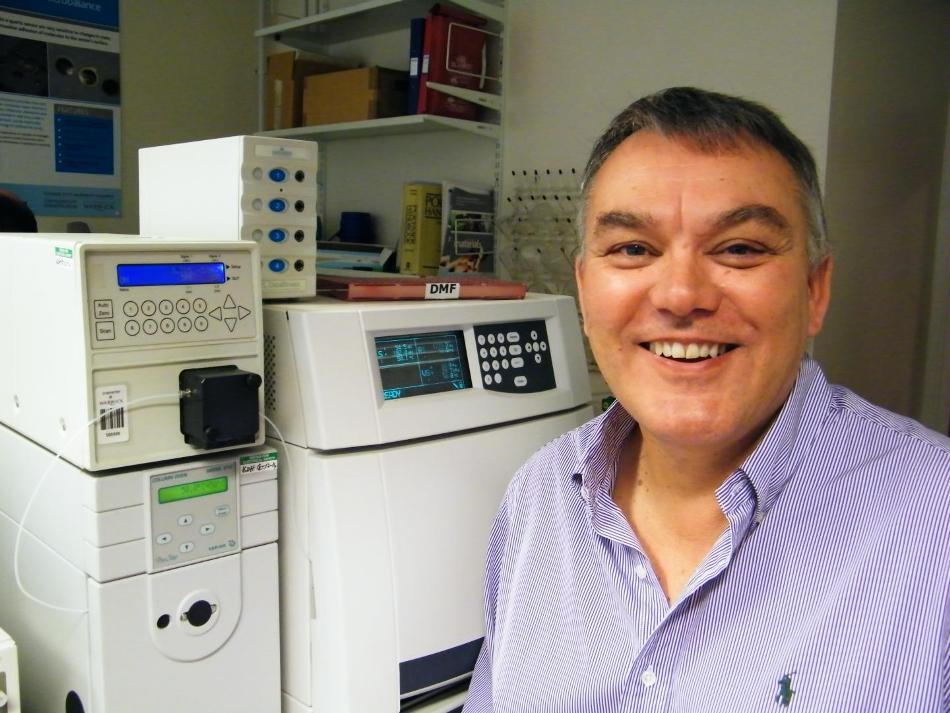Oct 19 2016
 Professor David Haddleton. (Credit - University of Warwick)
Professor David Haddleton. (Credit - University of Warwick)
According to a recent study at the University of Warwick, mobile phones, computers, medicine, and clothes could all be improved using the process applied for manufacturing paint.
A key finding in the understanding of polymers is set to be used in the manufacture of commercial products ranging from electrical goods to water bottles, to make them stronger and highly effective for their applications.
Professor David Haddleton from Warwick’s Department of Chemistry has discovered a method to convert the specific requirements of a product into its vital molecular structure.
Performing the same process that produces glue and emulsion paint, complex polymers can be customized, with producers able to write into the code or DNA of a molecule the exact properties required for the end product.
Commercial producers will be able to gain greater control over the design of their products by utilizing their current infrastructure with a minor modification.
Controlled polymerization has transformed academic polymer synthesis and traditionally uses one of two methods: with copper or with sulfur. Both methods have certain negative factors - the former uses heavy metal and catalysts which raise the costs and complicate the new materials, and the latter uses lethal and noxious bad smelling thiols.
The process used to manufacture household glues and emulsion paint using water as solvent is emulsion polymerization. The researchers used special macromonomers to enable a new process called sulfur-free RAFT emulsion polymerization, which removes these problems. It allows complex polymers with superior monomer sequence control to be synthesized in an aqueous environment, without using chemicals containing sulfur.
Professor Haddleton states that the discovery will have several commercial uses:
Sulfur-free RAFT allows the use of commercial processes to make sequence controlled polymers containing molecular information to be made using large and uncontaminated processes and I expect this to be of great interest to the polymer industry for use in nanomedicine to automotive applications.
Professor David Haddleton, University of Warwick
The University of Warwick is recognized as a leader in polymer research. In 2016, Warwick hosted the biggest polymer chemistry conference ever to be held in the UK.
Professor Haddleton heads the Haddleton polymer research group at Warwick, and he is Editor-in-Chief of Polymer Chemistry, a new high impact Royal Society of Chemistry Journal. The research paper, ‘Sequence-controlled methacrylic multiblock copolymers via sulphur-free RAFT emulsion polymerization’, is published in Nature Chemistry.